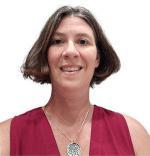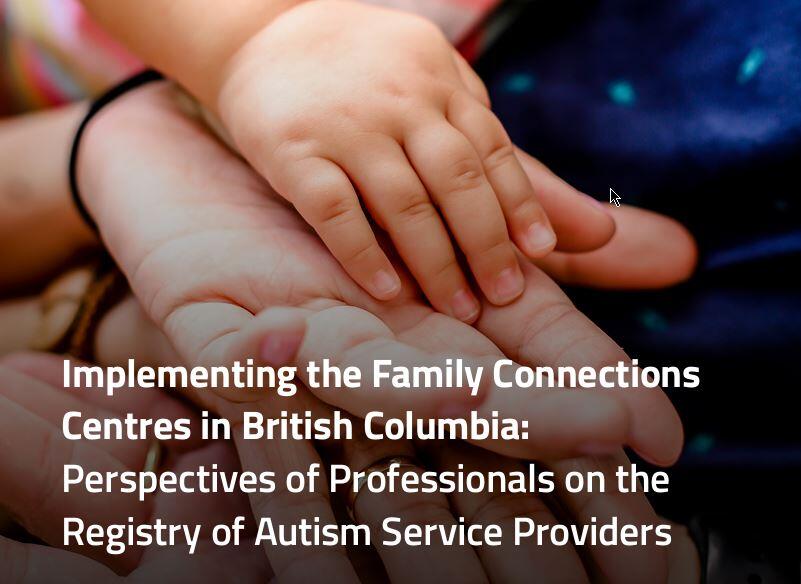ACT is excited to welcome two new members to our team!

Eli Neptune: Community Liaison Officer
Eli Neptune joins us as the Community Liaison Officer. Eli has a Bachelor of Engineering in Civil Engineering from the British Columbia Institute of Technology. Eli joined ACT to apply his lived experience as an autistic person to help advance outreach to other neurodiverse individuals and families from marginalized communities. Eli can be reached at [email protected].
Rémi Castonguay: Information Resource Manager

Rémi Castonguay is our new Information Resource Manager. Rémi received his Master’s in Library and Information Studies from McGill University in 2000 and an M.A. in musicology from Hunter College in 2008. Rémi is so happy so join ACT as Information Resource Manager because he can bring together his information management skills with his commitment to helping people with disabilities. Rémi can be reached at [email protected].
View all of ACT’s staff on our Staff Members page.
2023 Summer Camps & Activities
Summer is just around the corner! To help families find recreation opportunities, ACT has been gathering information on fun activities for all ages.
Submit your activities
If you have a camp, program or event to share with families who have children with a range of diverse needs, please submit your activities here. Please note that we are looking for more specialized resources that will address the needs of neurodiverse children.
Please note you must check with the Autism Funding Branch to confirm that they will reimburse registration for a U.S. based online summer camp.
Implementing the Family Connections Centres in British Columbia: Perspectives of Professionals on the Registry of Autism Service Providers
Therapy Centres without Therapists?
Clinicians expected to staff the newly announced Family Connection Centres (FCCs) across the province are concerned about its effectiveness, a survey carried out by researchers at Simon Fraser University reports.
‘Implementing the Family Connection Centres in British Columbia: Perspectives of Professionals on the Registry of Autism Service Providers’ (RASP), is based on a survey of 1,000 clinicians listed on the RASP. It received 485 responses – an unusually high response rate. The results are unambiguous:
- Only 9% of respondents “agreed/strongly agreed” that the new Family Connections model will be effective in addressing the needs of all children requiring support.
- 37% of RASP professionals reported that they were unlikely/very unlikely to work for an FCC.
- 42% responded that they did not have enough information to decide.
- 75% of respondents agreed/strongly agreed that quality of care will be compromised within the proposed FCC model.
- 82% agreed/strongly agreed that this new model will lead to cumbersome bureaucracy.
- Qualitative analysis of open-ended responses revealed major concerns (e.g., two-tiered system, poorer quality of services, long waitlists).
In October 2021, the Ministry of Children and Family Development (MCFD) announced over 40 Family Connection Centres as a more equitable system for children with disabilities requiring therapeutic and support services. The FCCs were announced as a response to criticism of MCFD’s long standing policy of limiting support to services for children with disabilities unless they have a diagnosis of autism.
The announcement has been met with intense criticism from diverse organizations, especially those representing children with autism, because it entails the ending of individualized funding and expands the number of children who will be served, by at least a third, without making a commitment of significant new funding. This has raised the fears that the centres will be beset with long waiting lists as they will not be able to serve the number of children who require services given the province-wide shortage of clinicians.
Clinicians on the RASP include Behavior Analysts, Occupational Therapists, Speech-Language Pathologist and Physical Therapists who provide therapy to children with a wide-range of disabilities, in addition to autism. This makes the survey relevant to the issue of how these new centres will attract staff given wide-spread shortages of these professionals in both the private and public sectors and the higher wages in the private sector.
Dr. Grace Iarocci, Professor of Psychology at SFU and Director of the Autism and Developmental Disabilities Lab who led the research explains:
“The current system does need extensive reform as all disabled children need skilled support but creating physical centres does not address the human resource shortage that has been created because of lack of public funding to train and pay clinicians – especially Indigenous clinicians whose communities are particularly underserved.”
Deborah Pugh, Executive Director, ACT – Autism Community Training highlights the fears among families:
“The concern is that these centres will warehouse all children with disabilities together, regardless of their individual needs, negating decades of developing individualizing supports in communities allowing families to make choices that fit their child. Indigenous leaders have highlighted this concern which is particularly difficult for families who have experienced the legacy of residential schools, but it is shared widely by families who have experienced rejection from government systems – especially public schools.”
To speak with Dr. Grace Iarocci and for more information on this report, contact Vanessa Fong at [email protected]
For more information on ACT – Autism Community Training, contact Deborah Pugh, at [email protected]
Analysis identifies serious flaws in MCFD’s proposed tools for determining how children with disabilities qualify for support
In late 2021, BC’s Ministry of Children and Family Development (MCFD) announced sweeping changes to how it intends to provide funding and services to children and youth with disabilities. Since that time, parents, advocates, and service providers have raised questions and concerns about various elements of the proposed new system. This includes the needs-assessment tools the new system will rely on to decide which children with disabilities should receive support. Caregivers are expected to fill these in online.
An analysis by Dr. Pat Mirenda, Professor Emerita, University of British Columbia, supports concerns that these proposed tools have not been properly assessed by MCFD, in terms of their fit for ensuring that children have access to services.
To date, MCFD has not provided details of how it intends to use these pediatric evaluation tools, known as PEDI-CAT and Vineland-3. The only jurisdiction where this combination has been used internationally is Australia, where a study revealed that the PEDI-CAT tool disqualified 25% of children whose parents were concerned and whose pediatricians referred them for assessment. The Vineland-3 tool disqualified 4% of children.
In a recent letter to MCFD, a collective of organizations who work with and support families of children with disabilities, including ACT, noted that more consultation is needed to ensure that over reliance on these assessment tools will not cause harm or exclude children and families from the supports and services they need.
The British Columbia Disability Collective is a group of BC-based organizations, as well as clinicians, researchers, and businesses with hundreds of years of combined experience supporting tens of thousands of children and youth with disabilities and complex needs. They thank Dr. Mirenda for her analysis of a complex issue.

Inclusive Rally in Victoria
Wed, February 9, 2022
11:30AM- 1:30 PM PST
BC Legislative Building, Victoria
Join parents, advocates, caregivers and service providers of the most vulnerable children in BC on February 9th in person on the lawn of the BC Legislature in Victoria, as well as virtually for those that cannot attend in person. This is an Inclusive Rally to keep the pressure on the BC NDP and the Minister of Children and Family Development to Stop, Consult and Listen to all concerns with regards to the elimination of individual autism funding, the At Home Program and moving to a hub/centre-based system. There has been extensive criticism of the new framework by families, Indigenous leaders, opposition parties, disability groups and the media.
It is the position of the rally organizers that if MCFD really wants to help children with FASD, Down syndrome, ADHD and other disabilities, then the Minister should engage in meaningful consultation and give the choice of individual funding.
MCFD Announces CYSN Family Connection Centre Sessions
Please join the Ministry of Children and Family Development for small group sessions to discuss and explore the journey of children and youth with support needs and their families in the family connections centres. To maximize time for discussion and answer as many questions as they can, they will email you some pre-recorded materials to watch in advance.
LIMITED SPACES ARE AVAILABLE. REGISTER TO SECURE YOUR SEAT.
How to Register:
Families can register here.
Service Providers and Sector Partners register here.
Remembering Dr. Karen Raye Kester

This is a great loss for her friends and family, and for those families who have relied on her. Visit her obituary page here.
ACT thanks everyone who has donated in her memory.
Autism News from around the Internet
- Bienvenue à la clientèle autiste
- Nine Minds by Daniel Tammet review – a new language for neurodiversity
- Do gut microbes have a role in autism itself?
- Autism could be diagnosed with stool sample, scientists say
- Mealtimes can be daunting for a child who is autistic or has ADHD. Here are five ways to support them | Stella Boyd-Ford and Clare Dix for the Conversation

